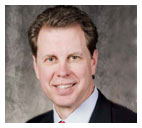|
Download the Media Review | JW in the News | 100 Years of History
Paul Watler's Podcast: Citizens United, Texas Bingo and the First Amendment
* Click here to listen to this podcast Texas veterans groups and fraternal organizations may be shouting “bingo” in the halls of the Texas Capitol during the next regular session of the Legislature. The groups recently won a first amendment victory from U.S. District Judge Sam Sparks of Austin. The ruling extends the controversial 5-4 decision by the U.S. Supreme Court in Citizens United v. Federal Election Commission, 130 S. Ct. 876 (U.S. 2010), that corporations have a First Amendment right to engage in free speech in support of political candidates and causes. During the recent general election campaign, the fallout from Citizens United was on the mind of many observers and commentators. A Washington Post report quoted Senator Russ Feingold of Wisconsin as saying that more than $2 million of corporate-funded advertising was poured into the successful campaign to defeat him for re-election. Feingold was the co-author of the statute that prohibited corporate spending on elections that was struck down in Citizens United. Those focusing on the impact of the Supreme Court ruling on campaigns across the country may have missed that, in Austin, on the eve of the election, a federal district judge extended Citizens United to protect the free speech rights of charitable bingo operators. The Texas bingo case illustrates that Citizens United will have a significant impact on First Amendment jurisprudence for years to come. In an opinion issued October 29th, Sparks enjoined the State of Texas from enforcing portions of the Bingo Enabling Act that prohibit charitable bingo operators from using gaming proceeds to engage in political advocacy. The complaint in Austin Division, Department of Texas VFW v. Texas Lottery Commission, Case No. A-10-CA-465-SS (W.D. Tex, Oct. 29, 2010) (Sam Sparks, J.), provides the following background. The suit for declaratory judgment and injunctive relief, filed June 25, 2010, was brought by more than a dozen veterans posts and fraternal lodges licensed under state law to operate bingo games. The complaint contends that a “political battle for the life of bingo is pending in the Texas Legislature” and that state law impermissibly restrains their First Amendment right to participate in the debate. The Bingo Enabling Act restrains licensed charitable bingo operators such as the plaintiffs from using bingo proceeds to support or oppose a ballot measure or to influence legislation. The bingo operators contended that the law discriminates between for-profit entities that conduct gambling and not-for-profit operators such as plaintiffs. For example, the Texas Racing Act permits pari-mutuel gambling at licensed for-profit race-tracks but does not restrict the use of gaming proceeds to influence legislation or engage in political activity. The veterans and fraternal groups contended this constituted prohibited viewpoint discrimination, thereby running afoul of the First and Fourteenth Amendments. In his opinion, Judge Sparks agreed denying the State’s motion to dismiss. He found that the challenged sections are facially unconstitutional restraints on free speech under the First Amendment because of the discrimination between speakers on the basis of identity. Judge Sparks turned to Citizens United in first resolving whether the statute restrains a substantial amount of protected speech. In finding that it did, Sparks noted that Citizens United rejected the argument that political speech of corporations or associations should be treated differently under the First Amendment than that of natural persons. The State argued that Citizens United was distinguishable because the bingo act provisions do not constitute an outright ban on speech unlike the prohibition on political advocacy by corporations at issue in the Supreme Court case. The bingo operators were free to engage in political speech, they were just restricted in using certain sources of revenue to fund it. The State thus contended the burden on the plaintiffs was far less than in Citizens United. However, the court dismissed the State’s arguments. Further applying Citizens United, Judge Sparks found that the contested provisions of the Bingo Enabling Act were subject to strict scrutiny analysis, which requires the government to prove the restrictions are necessary to further a compelling state interest and are narrowly tailored to achieve that interest. In the bingo case, Judge Sparks found that the State made no attempt to identify any such compelling government interest. Sparks wrote, “In light of Citizens United, it is highly questionable that even a blanket ban on the use of gambling proceeds for political speech would pass constitutional muster.” Citizens United is probably the most controversial Supreme Court ruling since Bush v. Gore. The general election showed the decision was being felt in campaigns across the country. The Texas bingo case illustrates that Citizens United will have a significant impact on First Amendment jurisprudence for years to come. Jackson Walker partner Paul Watler regularly provides podcasts for Texas Lawyer. An archive of previous First Amendment podcasts can be found here. |






